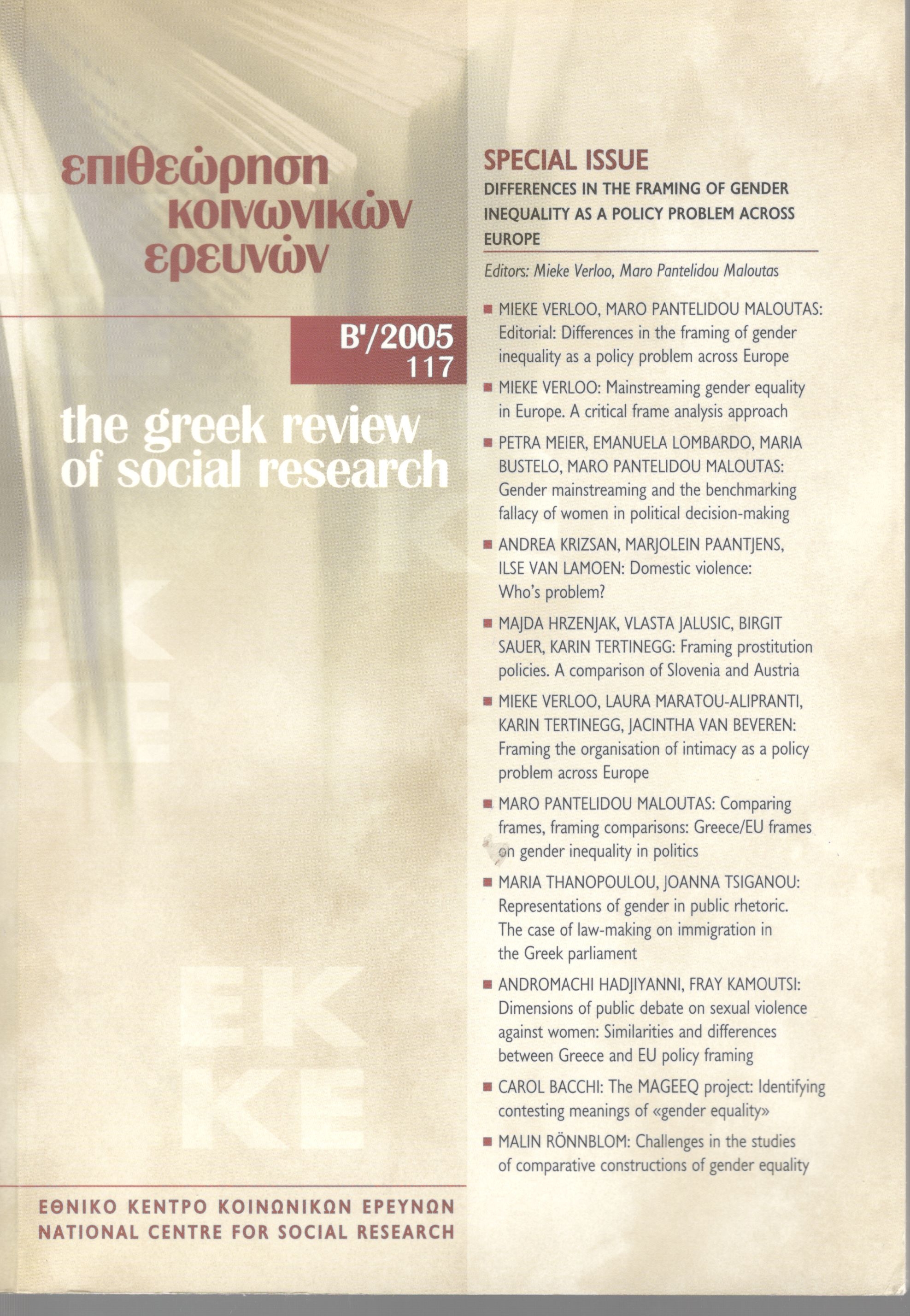Dimensions of public debate on sexual violence against women: similarities and differences between Greece and EU policy framing
Abstract
This article aims at a critical analysis of Greek public discourse concerning various forms of sexual violence, as presented mainly in Parliamentary discussions, but also in the press where politicians and activists debate the issue. Using the Mageeq methodology and analysed documents, the objective is to investigate the way in which various social actors define gender and make it apparent (or not) within the respective discourse, as well as to examine the framing of specific issues of sexual violence (intra-family violence and trafficking). An additional objective is to highlight the differences and similarities in the conceptualisation of these forms of sexual violence between EU policy texts and the Greek case.
Article Details
- How to Cite
-
Hadjiyanni Α., & Kamoutsi, F. (2016). Dimensions of public debate on sexual violence against women: similarities and differences between Greece and EU policy framing. The Greek Review of Social Research, 117, 189–220. https://doi.org/10.12681/grsr.9563
- Section
- Articles

This work is licensed under a Creative Commons Attribution-NonCommercial 4.0 International License.
Authors who publish with this journal agree to the following terms:
- Authors retain copyright and grant the journal right of first publication with the work simultaneously licensed under a Creative Commons Attribution Non-Commercial License that allows others to share the work with an acknowledgement of the work's authorship and initial publication in this journal.
- Authors are able to enter into separate, additional contractual arrangements for the non-exclusive distribution of the journal's published version of the work (e.g. post it to an institutional repository or publish it in a book), with an acknowledgement of its initial publication in this journal.
- Authors are permitted and encouraged to post their work online (preferably in institutional repositories or on their website) prior to and during the submission process, as it can lead to productive exchanges, as well as earlier and greater citation of published work (See The Effect of Open Access).



